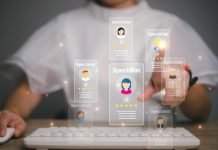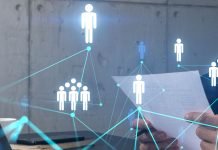“OpenAI is nothing without its people”. So tweeted Mira Murati, the then-interim CEO of OpenAI, the leader in AI innovation, over the weekend of November 18th. The tweet was repeated by other employees hundreds of times over a few hours. And so it became obvious, even for the world’s foremost AI company, that employees are every organization’s biggest asset. Individuals’ unique backgrounds, experiences, and expertise contribute to their undeniable value. They bring feelings, passions, and a peripheral vision – helping businesses connect the dots to achievement. The introduction of new technology, like artificial intelligence, doesn’t change that.
In fact, today’s employees believe these new tools will only strengthen their unique contributions – with 70% of Gen Z and 56% of Gen X employees saying they would leave their current job if it meant they’d have access to better technology. In response, 81% of HR leaders note they’ve already explored or implemented artificial intelligence within their organizations. The result? Greater communication skills, greater productivity, better teamwork, better results.
New technology can be disruptive without being destructive. And the new world order of work calls for new solutions.
Modern Challenges: AI in the era of hybrid work
It’s no secret that office environments have drastically changed in recent years. The expansion of hybrid and remote environments flipped work on its head – separating people geographically and introducing communication, collaboration, and mentorship only via a computer screen.
In doing so, we’ve lost some ground on the very attributes that make us individuals and enable connection. Here is how AI-powered learning tools can help the workforce regain confidence in their people skills in two critical areas.
1.Better Soft Skills, Better Workplace Performance
The way we interact with one another is foundational to creating meaningful relationships and effective communication. These skills are even more important in a digital world as communication needs and styles evolved without face-to-face interactions. That’s why 50% of HR managers agree that jobs require more soft skills than ever before – frequently citing them as a critical component to business success. However, today’s talent isn’t meeting those expectations. So much so that 40% of business leaders believe entry-level candidates are unprepared for the workforce, citing poor office etiquette, communication skills, and social graces.
Streamlining soft skills training has been historically difficult to accomplish – thanks in part to the many nuances of human interaction. But this is where the latest AI can help bridge the soft skills gap at scale without losing personalization and acknowledgment of these nuances.
GenAI-powered workplace learning tools successfully capture the nuance behind individual attributes like skillsets, job role, and personality. So much so, that these tools are helping employees lean into their unique differentiators when training for high-stakes situations like salary negotiations or performance reviews. By simulating realistic situations with AI, employees can practice their interpersonal skills and ultimate responses to an endless number of situations – without losing their personal voice. As organizations continue to prioritize strengthening soft skills, AI-powered workplace learning will be critical for HR leaders looking to drive more effective conversations, feedback, and employee performance.
2.Leadership Development for Success
While managers typically learn how to coach, develop, and lead teams independently – hybrid environments have heightened the pressure to master these skills from miles away. The result? 40% of managers feel a higher level of stress while remote, finding it more difficult to connect with individual employees.
Managers need help learning how to be a manager, and part of that is delivering nuanced feedback. Each direct report is different, and every situation is different. Just like with soft skills training, a blanket approach to managing doesn’t work. Instead, managers need tools to help them navigate each unique situation and individual.
That’s where the personalization capabilities of AI can help. For instance, AI-powered conversation tools allow managers to test their approach before the real conversation takes place. Let’s say they have an employee who is failing to complete assignments and appears overall disengaged. The manager can use an AI conversation tool to practice that scenario and receive feedback in real time, leading to a better and more productive conversation with the disengaged employee. Or maybe they have an employee who is showing resistance to hybrid work environments. Instead of diving headfirst into a conversation without practice, AI-powered conversation tools enable the manager to practice and receive convincing, conversational responses consistent with the traits of a character. It is a safe and secure way to help managers build their confidence.
AI-backed workplace technology can help fill in the performance shortcomings, without mitigating what makes your business different: your people.
ABOUT THE AUTHOR

Ben Betts
CEO of Learning Pool
Ben Betts is the CEO of Learning Pool, a leader in intelligent workplace learning. Ben is an author, speaker and researcher focused on learning effectiveness, with nearly 20 years of experience and a Ph.D. on creating impactful learning.














